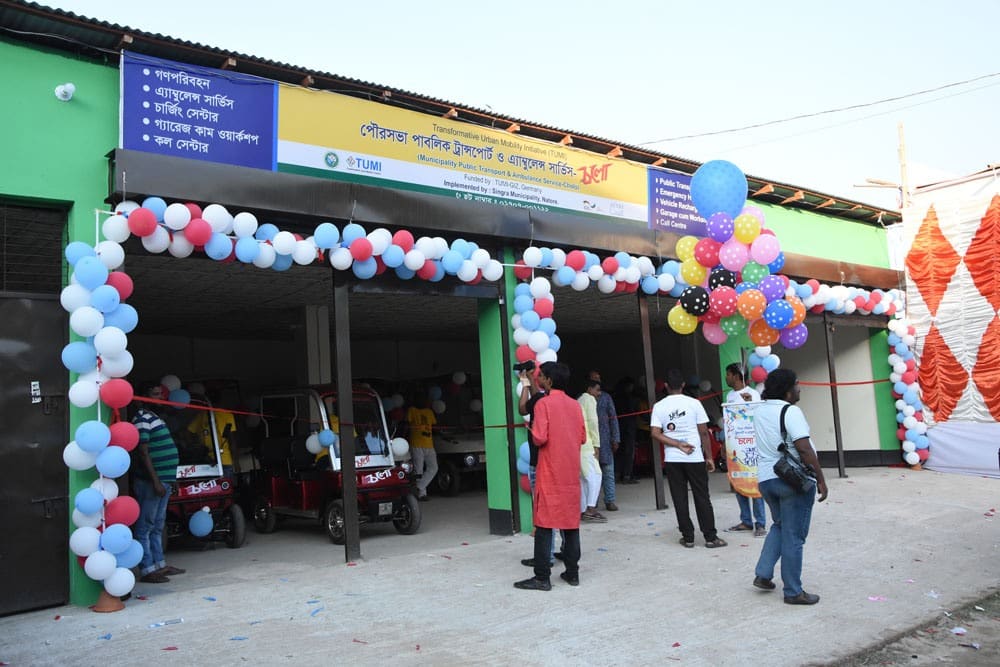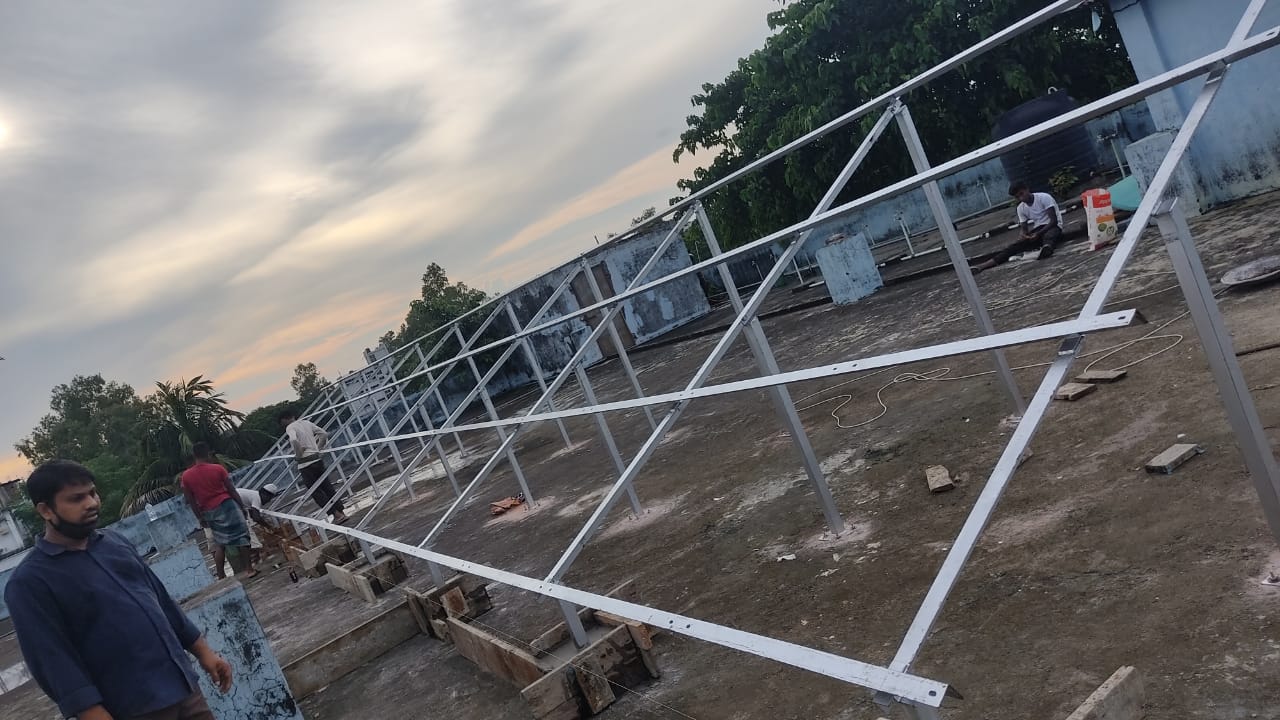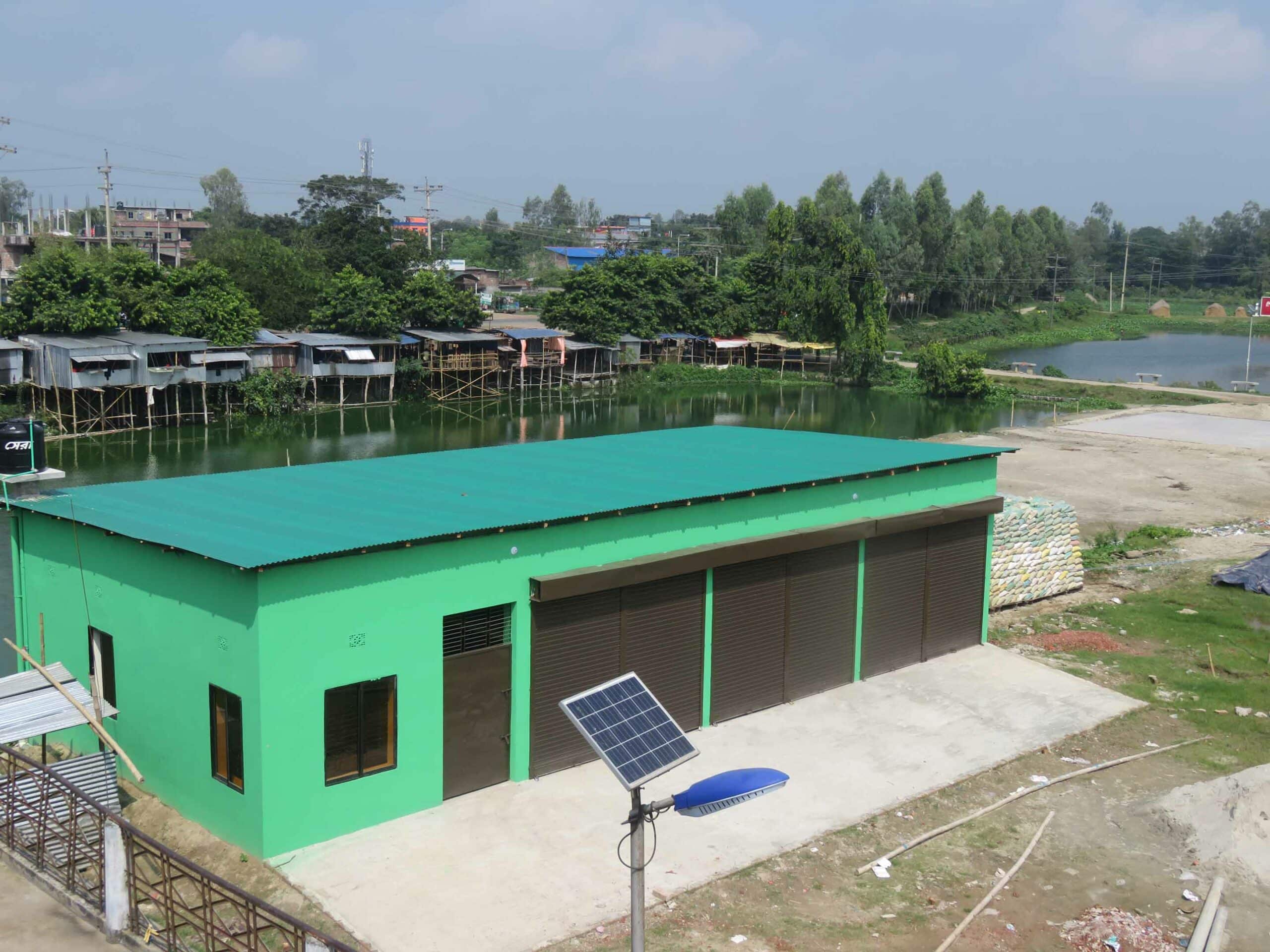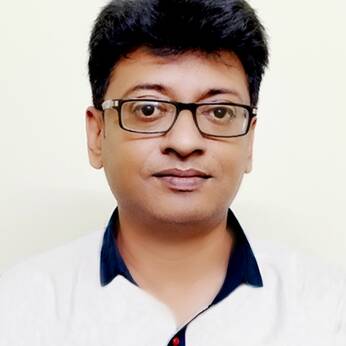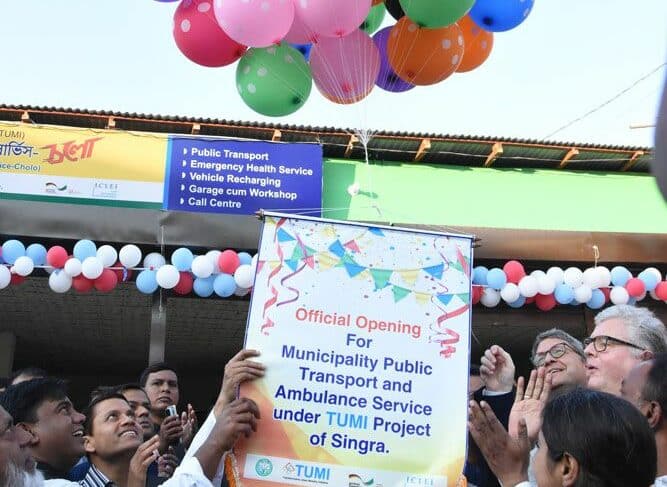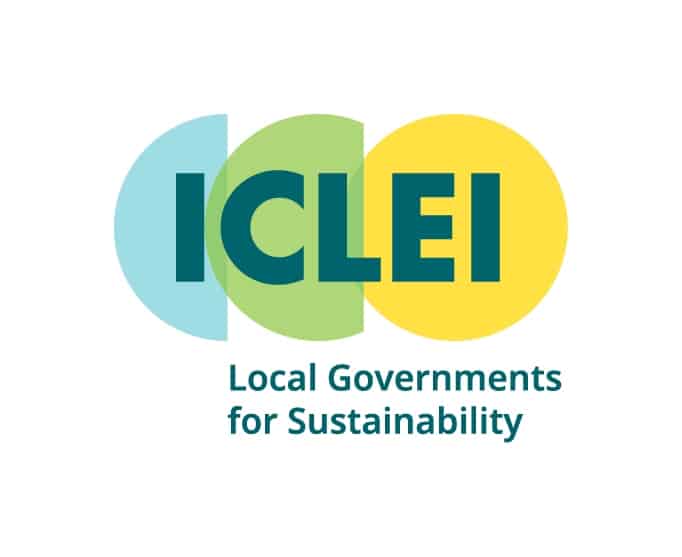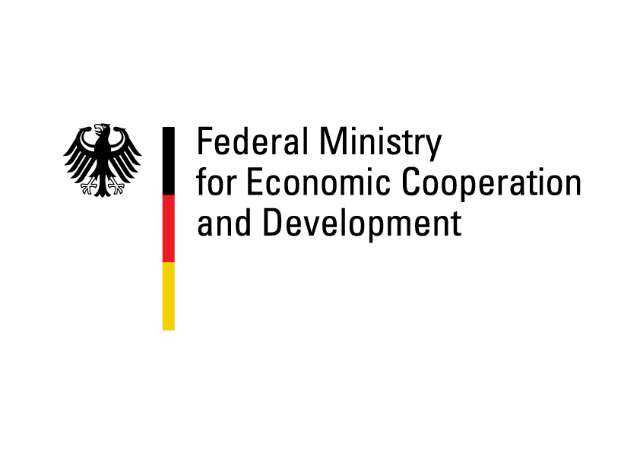A Public Transport And Health Service For Singra
With our project we established the first public transport route in Singra, Bangladesh. Moreover, we introduced e-vehicles for public health services and ensured Corona medical and nutrition security distribution.
